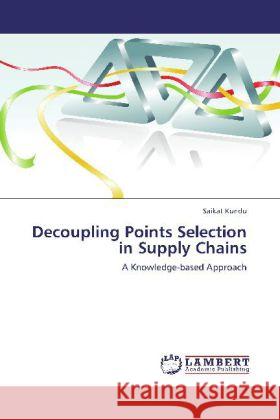Decoupling Points Selection in Supply Chains » książka
Decoupling Points Selection in Supply Chains
ISBN-13: 9783848437436 / Angielski / Miękka / 248 str.
As consumer desire for customized products and services at affordable prices and shorter lead-times continue to grow, supply chain operators are facing increasing challenges of becoming both physically efficient (to enable the delivery of low cost) and flexible (to enable market-responsiveness). In order to meet these challenges, organizations are devising supply chain operation strategies that enable them to gain the benefits of physical efficiency of mass production and the customer focus of mass customization. A key to gaining these benefits lies in the selection of appropriate decoupling points in the supply chain. Decoupling points lie on the push-pull boundary. The existing approaches to selection of supply chain decoupling points are not systematic and primarily based on the judgment of the practitioners. This book addresses this gap by presenting a knowledge model (in the form of a network of rules) to aid in the selection of decoupling points in supply chains. Knowledge-based techniques bring together knowledge from the viewpoints of multiple domain experts. Results derived from applying the knowledge model to three case studies show similar trends to published literature.











